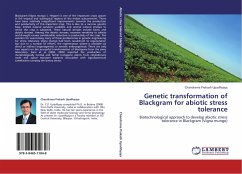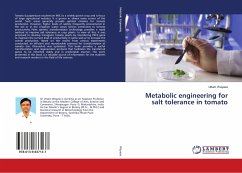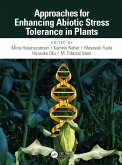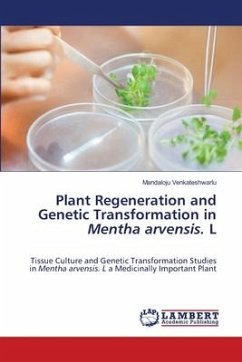Blackgram (Vigna mungo L. Hepper) is one of the important crops grown in the tropical and subtropical regions of the Indian subcontinent. There have been relatively insignificant improvements towards the production and productivity of this important crop. This is due to a narrow genetic base, limited natural variation available and several natural stresses to which the crop is subjected. These natural stresses include biotic and abiotic stresses. Among the abiotic stresses, excessive sensitivity to salinity and drought causes considerable reduction in productivity of the crop. The solution for overcoming many of these problems lies in genetic engineering for stress tolerance. Vigna mungo had been recalcitrant to regeneration but due to a number of efforts, the regeneration system is available via direct or indirect organogenesis or somatic embryogenesis. There are only two reports on the successful transformation of blackgram from the same laboratory. Saini et al (2003, 2005) reported the production of morphologically normal and fertile transgenic plants from cotyledonary node and apical meristem explants inoculated with Agrobacterium tumefaciens carrying the binary vector.
Bitte wählen Sie Ihr Anliegen aus.
Rechnungen
Retourenschein anfordern
Bestellstatus
Storno








